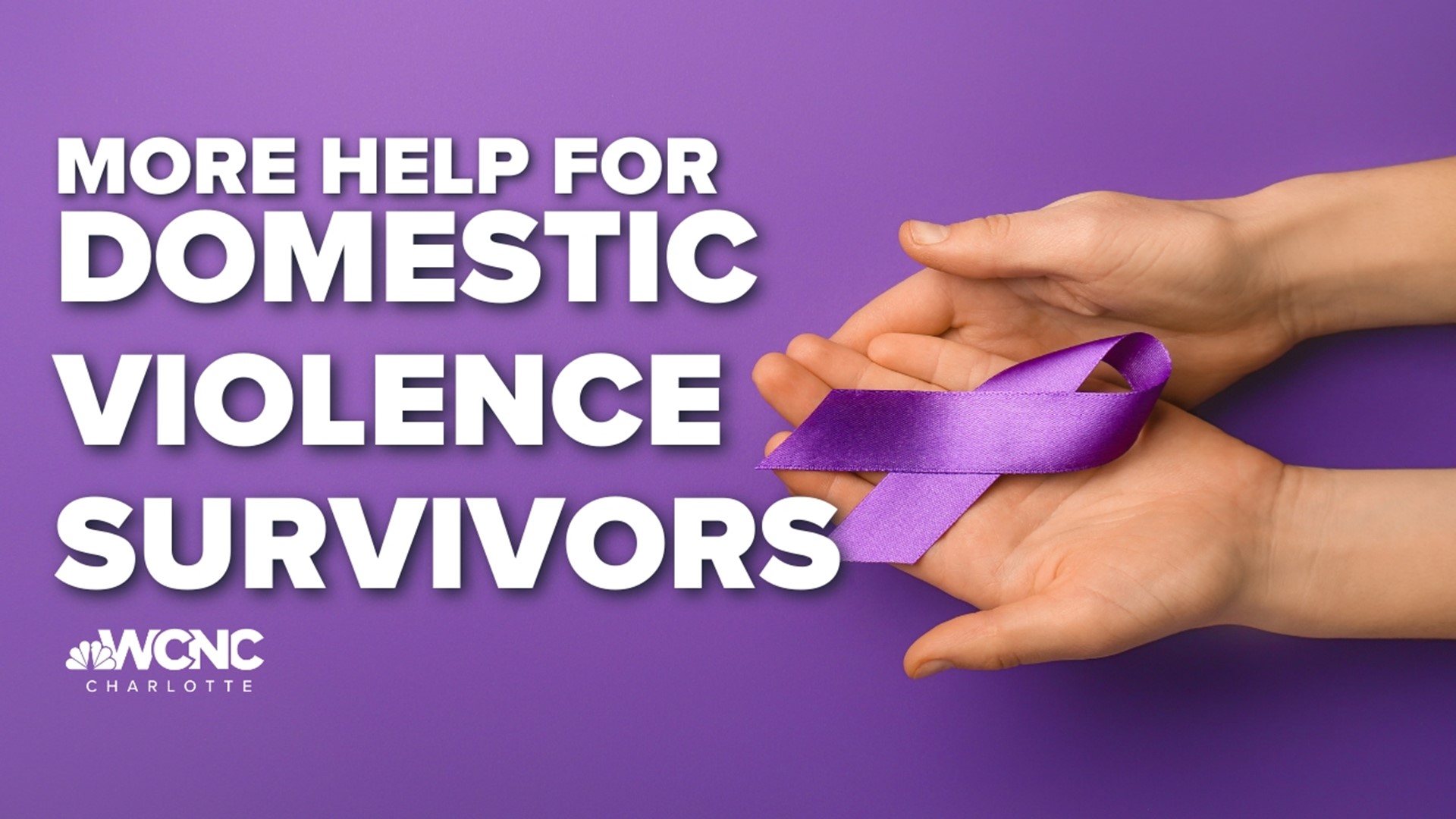CHARLOTTE, N.C. — There could soon be new help for domestic violence survivors. Pending legislation would make sure survivors don’t have to carry debt caused by their abusers.
Editor's Note: This story discusses domestic violence, which may include descriptions of violent acts. Reader discretion is advised.
It’s hard enough to break free from an abuser, but often survivors are left with major debt that isn’t theirs. House Bill 561 would change that.
Melody Gross said she broke free from her abuser just in the nick of time.
“I’m glad I got out when I did, it definitely was escalating to the point of threats of murder, that’s really scary -- to someone who will say they love you in one instance and then to decide you’re worth killing," Gross said. "It got pretty bad.”
A domestic violence survivor, she fled but faced years of additional trauma, even after escaping her abuser.
“You try to break free physically but then ... you have this burden of financial responsibilities that aren’t really yours," she said. "It’s how perpetrators continue to control survivors and get them to do what they want.”
North Carolina House Minority Whip Terry Brown is trying to change that. He just introduced a bill that gives survivors financial protections.
"This legislation will allow victims of domestic violence to get recourse for any debt that was brought on by a threat, coercion, undue influence at the hands of their abuser and it will allow the financial institution or whoever the lender was to be able to go in and recoup that expense against the abuser," Brown said.
The cause is personal for Brown, who started his legal career working for free representing survivors. He still does at least one case a month and sees firsthand the devastating and long-term effects survivors face.
“You get a protective order now you've got the physical distance between you and your abuser but the one thing [you] don’t have is that financial piece that you need going into that, and it carries, follows you for so long," Brown said. "You can’t get an apartment, you've got credit card debt that affects your credit score, you can’t get a car to take your kids to and from school -- all those are lingering aspects of that domestic violence that almost creates sort of a PTSD, because you're always reminded of that abuse because of that debt that you’re saddled with."
The bill got unanimous bipartisan support in the House and will next move to the Senate for a vote.
Gross said this legislation will change the lives of others fighting to break free from dangerous relationships.
“This legislation in Durham, my town, would have been an absolute game-changer, because I would have had the resources to fight back legally to say this is not my debt," she said.
Contact Michelle Boudin at mboudin@wcnc.com and follow her on Facebook, Twitter and Instagram.
If you or a loved one is facing domestic violence, help is readily available. You can call the National Domestic Violence Hotline at 800-799-7233 or text START to 88788. Resources for help are available in both North Carolina and South Carolina.

